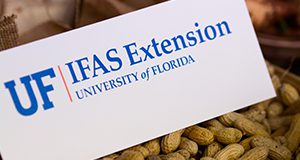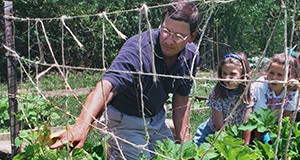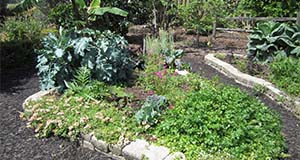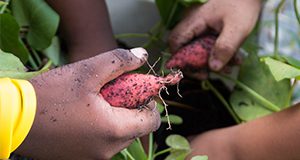This fifth publication in the Road to Recovery series discusses how Extension professionals can evaluate techniques to build trust when facilitating virtual programming. Specific recommendations are provided addressing concerns about short- and long-term virtual trust, inclusion techniques, Zoom fatigue, and cybersecurity. This new 5-page publication of the UF/IFAS Department of Agricultural Education and Communication was written by Colby Silvert, Cody Gusto, John Diaz, and Glenn Israel.
https://edis.ifas.ufl.edu/wc388
Tag: John Diaz
The Road to Recovery #4: Evaluating Virtual Techniques to Reach Clientele and Promote Equity
This fourth publication in the Road to Recovery series explores the challenges Extension professionals may encounter in reaching clientele virtually during a pandemic. This new 4-page publication of the UF/IFAS Department of Agricultural Education and Communication discusses the concept of digital equity and provides recommendations to evaluate efforts to access and connect with key audiences. Written by Colby Silvert, Cody Gusto, John Diaz, and Glenn Israel.
https://edis.ifas.ufl.edu/wc387
The Road to Recovery #6: Evaluating Virtual Strategies to Build Community Capacity and Resilience
This sixth publication in the Road to Recovery series provides tips and strategies for Extension professionals interested in evaluating efforts to promote community capacity building and community resilience using virtual platforms. This new 5-page publication of the UF/IFAS Department of Agricultural Education and Communication was written by Cody Gusto, Colby Silvert, John Diaz, and Glenn Israel.
https://edis.ifas.ufl.edu/wc385
The Road to Recovery #3: Facilitating Community Resilience for Effective Pandemic Response
This third publication in the Road to Recovery series provides information and recommendations to support Extension professionals’ ability to facilitate capacity building and resilience development for communities during COVID-19 and potential future pandemic situations. This new 5-page publication of the UF/IFAS Department of Agricultural Education and Communication was written by Cody Gusto, Colby Silvert, and John Diaz.
https://edis.ifas.ufl.edu/wc380
The Road to Recovery #1: Introduction
This first publication in the Road to Recovery series provides a brief introduction to some core concerns and considerations for Extension professionals as they adapt their outreach, education, and evaluation efforts during a pandemic and recovery. This new 3-page publication of the UF/IFAS Department of Agricultural Education and Communication also includes an overview of the subsequent articles in the Road to Recovery series. Written by Cody Gusto, Colby Silvert, and John Diaz.
https://edis.ifas.ufl.edu/wc379
The Road to Recovery: Building Physical and Emotional Trust when Engaging with Extension Clientele
Now is a crucial time for Extension professionals to engage with clientele. In both urban and rural communities, clients are facing a multitude of unprecedented challenges related to COVID-19. Many Extension professionals already have experience in emergency and disaster preparedness, response, and recovery that can be applied in the present context. However, we must rethink how we interact with and assist clientele to ensure their safety and our own. To do this, it is critical we understand that the pandemic has exacerbated emotional trauma and anxiety resulting in trust gaps. This new 4-page publication of the UF/IFAS Department of Agricultural Education and Communication aims to build Extension professionals’ sensitivity to the needs and emotional strains that COVID-19 presents for clients, and the strategies needed for effective recovery. Written by Colby Silvert, Cody Gusto, and John Diaz.
https://edis.ifas.ufl.edu/wc376
Understanding Extension for School-Based Agricultural Education #1: Extension 101
This article and series were designed primarily for use by secondary agriscience teachers in school-based agricultural education programs (SBAE) to help build a strong understanding of Extension and the role of Extension professionals. An important part of access and use of Extension services is understanding its background, structure, and function. This initial publication in the Understanding Extension for School-Based Agricultural Education series provides agricultural educators and the general public with a basic understanding of Extension. This new 4-page publication of the Department of Agricultural Education and Communication was written by Debra Barry, John Diaz, Alyssa Shepherd, Jennifer Patton, and Stephen Gran.
https://edis.ifas.ufl.edu/wc372
Strategically Selecting Behaviors That Impact the Problem: An Approach Drawn from Social Marketing
Extension professionals and other practitioners address a wide variety of complex issues by providing education and encouraging behavior change using innovative strategies. The importance of prioritizing potential behaviors and selecting those with high expected impact cannot be overemphasized. However, behavior selection can be complicated because there are many solutions for any problem in a particular context. Using an approach drawn from social marketing to develop activities aimed at changing or maintaining people’s behavior, Extension professionals and other practitioners can prioritize behaviors by mathematically calculating anticipated weights that will help focus efforts around key behaviors with the potential to make the greatest impact. This new 6-page publication of the UF/IFAS Department of Agricultural Education and Communication provides an overview of a process to collect and analyze the impact and the likelihood of adoption to help Extension professionals decide on behaviors for a campaign or intervention. Written by Laura A. Warner and John M. Diaz.
https://edis.ifas.ufl.edu/wc375
Considering Participants’ Personal Wellness in Conservation-Based Extension Programs: Opportunities for Integrative Development and Evaluation
Extension organizations are at the forefront of water resource issues, using educational programs to drive participant behaviors towards water conservation. The effectiveness of these efforts centers on designing programs with considerations of the factors that will change relevant decisions and behaviors among residential landscape water users. We conducted a statewide study to explore the concept of wellness and well-being, and these characteristics’ relationship to water conservation behaviors. Our results show that psychosocial measures influence current and future residential landscape water conservation behaviors differently. Perception of well-being is the more consistent predictor for both current behaviors and future intentions. These results demonstrate an opportunity for those focused on environmental behaviors to pair and embed programs focused on personal well-being to empower communities to work toward achieving conservation goals.
https://edis.ifas.ufl.edu/wc370
Understanding Extension #2: Utilizing Extension Services in School-Based Agricultural Education
The services that Extension offers can supplement lesson plans in the classroom, can help to provide training and support for educators, and can help to build the toolbox of both first-year educators and the veteran educators that want to expand on their current lesson plans and resources. This new 4-page publication of the UF/IFAS Department of Agricultural Education and Communication helps to describe how UF/IFAS Extension can be utilized in agricultural education. Written by Debra Barry, John Diaz, Alyssa Shepherd, Jennifer Patton, and Stephen Gran.
https://edis.ifas.ufl.edu/wc367
Culturally Responsive Teaching: A Framework for Educating Diverse Audiences
As the diversity of Extension clientele continues to grow, it is important for Extension educators to consider new ways of supporting this population. The purpose of this new 5-page article is to provide a framework for educating diverse audiences to assist in helping these audiences attain the learning outcomes of Extension education programs. This includes: (1) acquiring a knowledge base of diverse cultures, (2) designing or utilizing culturally relevant curricula, (3) utilizing cultural caring and developing a learning community, (4) practicing intercultural communications, and (5) establishing cultural congruity in classroom instruction. Written by John Diaz, Cecilia Suarez, and Laura Valencia and published by the UF/IFAS Department of Agricultural Education and Communication.
https://edis.ifas.ufl.edu/wc341
Program Evaluation Challenges for Early-Career Extension Professionals: What Can You Do to Reduce the Stress?
This article outlines meaningful strategies to overcome the program evaluation challenges that early-career Extension professionals face. The strategies outlined in this article are grounded in the experiences of Extension professionals in three states (Florida, North Carolina and Pennsylvania) and center on providing solutions to the challenges that newer Extension professionals felt were the most important to address, in order to provide a manageable framework for agents to use. This new five-page publication of the UF/IFAS Department of Agricultural Education and Communication was written by John Diaz and Laura Warner.
http://edis.ifas.ufl.edu/wc335
Key Program Outcomes for K-12 School Gardens Identified Through Expert Consensus
National trends indicate that school gardens are positioned to become fixtures in primary and secondary education. This 4-page document outlines key outcomes identified through expert consensus that can be used by Extension professionals to develop a logic model for the school garden program. Written by Susan Webb, John Diaz, and Catherine Campbell and published by the UF/IFAS Department of Agricultural Education and Communication, September 2018.
http://edis.ifas.ufl.edu/wc312
Understanding the Barriers for School Garden Success: Expert Consensus to Guide Extension Programming
Research has found that youth involvement in school gardens leads to numerous benefits. However, teachers and support organizations must overcome barriers for garden sustainability. This 4-page document discusses barriers for school garden success and how Extension faculty can help education professionals overcome them. Written by Susan Webb, John Diaz, and Catherine Campbell and published by the UF/IFAS Department of Agricultural Education and Communication, August 2018.
http://edis.ifas.ufl.edu/wc315
Stakeholder-Identified Barriers, Challenges, and Obstacles in Community Gardens
Florida Extension agents play a vital role in assisting community members to start and sustain community gardens through site visits, workshops, and educational events. This 3-page document discusses the results of a Delphi study conducted in order to create a picture of the barriers, challenges, and obstacles to starting and sustaining community gardens in Florida. Written by Susan Webb and John Diaz and published by the UF/IFAS Department of Agricultural Education and Communication, March 2018.
http://edis.ifas.ufl.edu/wc301
Stakeholder-Identified Community Garden Program Outcomes
Extension clientele often contact agents for expertise on starting or maintaining a community garden; however, agents’ ability to collect meaningful data from these activities can be a challenge. This 3-page publication discusses a statewide study that was conducted by the author to identify community garden outcomes. Written by Susan Webb and John Diaz and published by the UF/IFAS Department of Agricultural Education and Communication, January 2018.
http://edis.ifas.ufl.edu/wc295
Overview of Extension Program Planning Models

The use of program plan development models within Extension has a long history of application based on environmental context, interest, and perceived value. The purpose of this 6-page article is to articulate a comparative overview of the various program planning models designed and employed by Extension professionals in education contexts. Written by John Diaz, Cody Gusto, and David Diehl and published by the UF/IFAS Department of Agricultural Education and Communication, January 2018.
http://edis.ifas.ufl.edu/wc289
Developing a Program Plan Based on the Program Planning Cycle
For over a century, Extension programs have used specific program development plans to create or refine services for clientele. This 6-page article seeks to provide an overview of fundamental tenets within program planning, how a planning process informs a development plan, and why these components are integral to Extension services. Written by John Diaz, Cody Gusto, and David Diehl and published by the UF/IFAS Department of Agricultural Education and Communication, December 2017.
http://edis.ifas.ufl.edu/wc290
Important Resources for the Development and Sustainability of School Garden Programs
Extension agents serve as a valuable resource in providing teachers with in-service training and technical education to increase their ability to effectively use gardening as an instructional tool. This three-page document provides an outline of important resources to help in the development and sustainability of a school garden program. Written by John M. Diaz and Erin Elsberry and published by the Department of Agricultural Education and Communication.
http://edis.ifas.ufl.edu/wc283
Developing County Associations for School and Community Gardens
Increasingly, gardeners receive attention for the educational, environmental, health, and social impacts that their projects facilitate within schools and communities. Garden associations allow Extension to play a vital role in providing technical information to support new and existing gardens. This three-page fact sheet outlines the framework used by a pilot garden association program in Polk County, Florida. Written by John M. Diaz, Susan Tyler Webb, and Erin Elsberry and published by the Department of Agriculture Education and Communication.
http://edis.ifas.ufl.edu/wc279
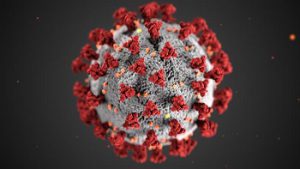

![[Impact × Current adoption levels × Likelihood] = Weight; A social marketing approach to prioritizing potential behaviors for an intervention.](https://edis-news.ifas.ufl.edu/wp-content/uploads/2020/10/wc375-300x160.jpg)


